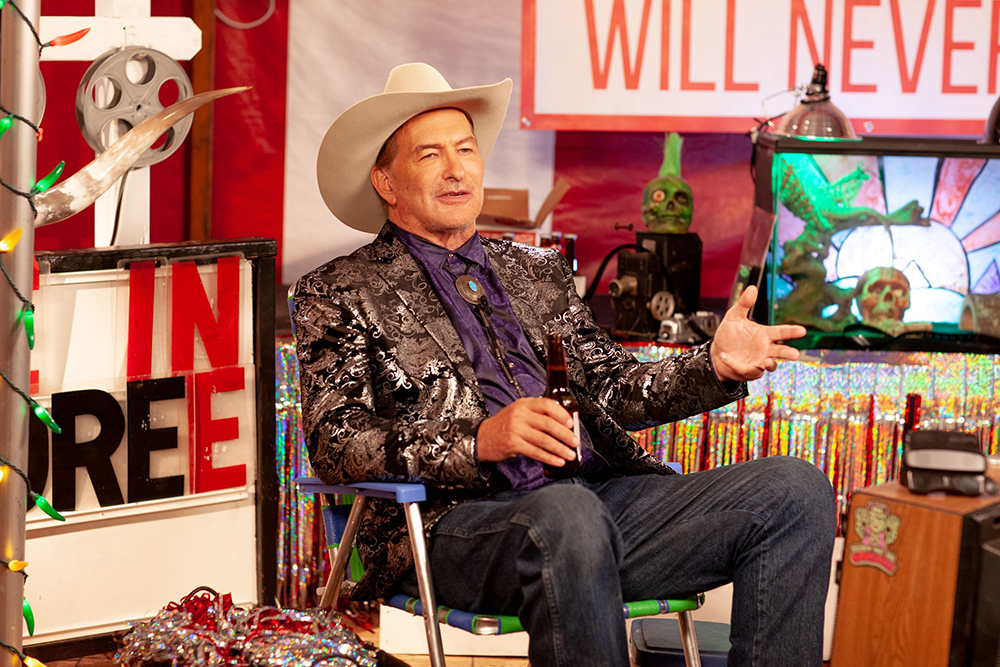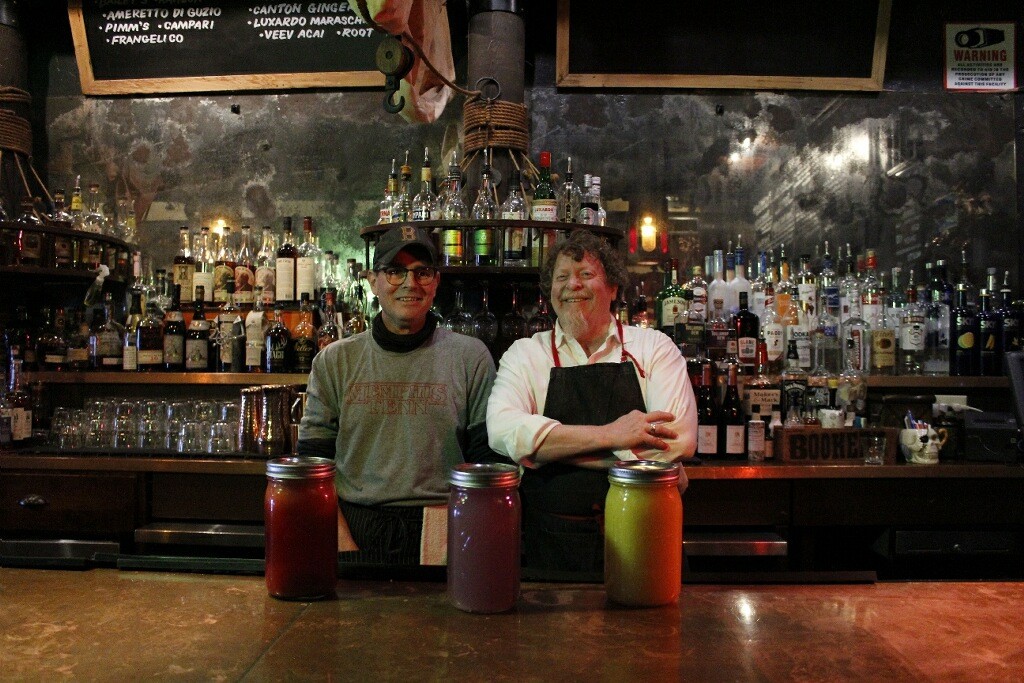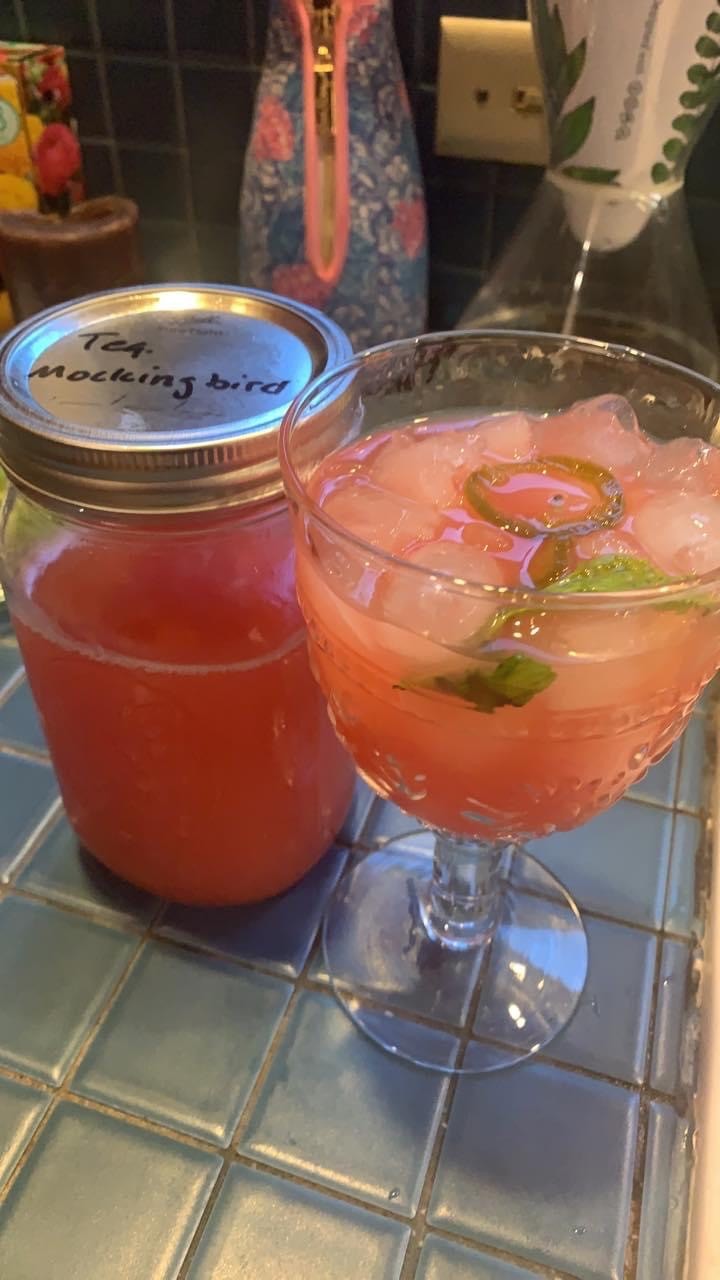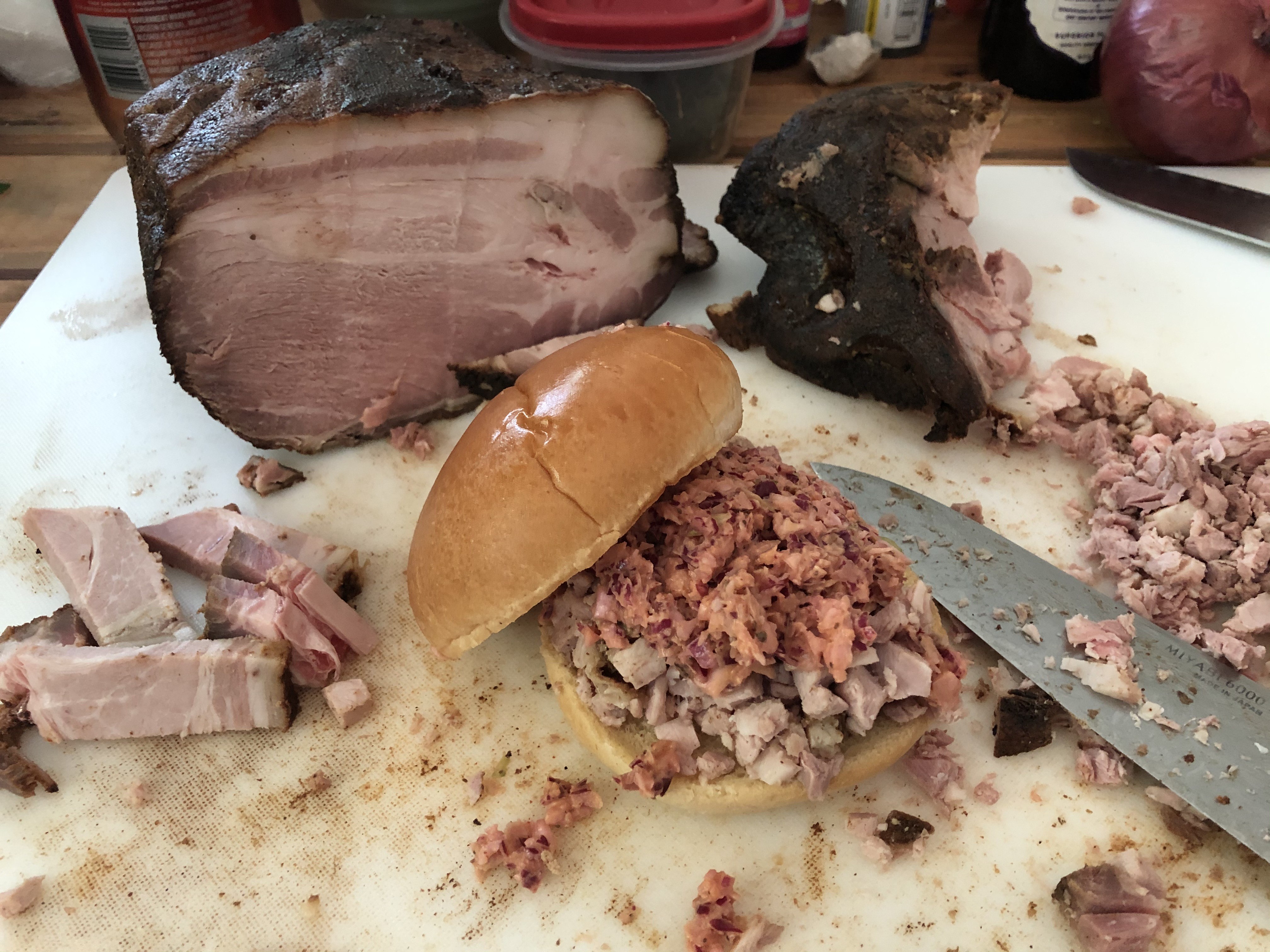One man’s trash is another man’s treasure. No one feels the truth of that old saw like Joe Bob Briggs. Born John Bloom in Dallas, Texas, he has been celebrating low-budget horror, sci-fi, kung fu, and just plain weird films for decades. He holds a journalism degree from Vanderbilt University and adopted his nom de plume in the mid-’80s while writing humorous reviews of exploitation and grind-house films for Texas Monthly. From 1986 to 1996, he hosted Joe Bob’s Drive-In Theater on The Movie Channel, where he perfected his public persona.
The films he featured every week were as viscerally thrilling as they were cheaply made. And if the plots were stupid or the acting subpar, well, all the better. On both the original show and his subsequent stint on TNT’s MonsterVision, Briggs rated films on how many scenes of badassery they contained. If, for example, a crazed killer used a pair of shears on his victim, Briggs would dub it as an incident of “scissor-fu.”
The movies he championed were always associated with drive-in theater culture. The first drive-in opened in New Jersey in 1933, and the concept quickly spread across the country. During their peak popularity in the 1950s, drive-ins catered to families by adding playgrounds and featuring mostly kid-friendly offerings. But low-budget, independent filmmakers who produced more outré fare often found it easier to book their films in rural drive-ins rather than movie palaces in the urban core. During the 1970s, gas price shocks and the rise of home video took a toll on drive-in culture, and many of the theaters that survived into the 1980s did so by specializing in the kind of shocking exploitation films that couldn’t get on a screen anywhere else. For Briggs, this is true cinema, and more mainstream fare or art films are mere “indoor bullstuff.”
Since 2018, Briggs has been a fixture on Shudder, the streaming service devoted to horror, with his new show The Last Drive-in. This weekend, July 8th-10th, Briggs comes to Memphis for the second annual Joe-Bob’s Drive-In Jamboree. “I love Tennessee, and I love Memphis,” Briggs says. “It’s the city of great music, great festivals, great barbecue, and the most hospitable people in the world.”
The Bluff City is also home to one of the biggest and most successful drive-in theaters in the world. Unlike many other theaters of its kind, the Malco Summer Drive-In survived the expensive conversion to digital projection thanks to the investment of the locally based theater chain’s then-president and drive-in aficionado Jimmy Tashie. That investment paid off big time during the coronavirus pandemic, when the surviving drive-ins were the only places where an audience could safely watch movies together. Last year’s drive-in fest was held at the Mahoning Drive-In in Lehighton, Pennsylvania. It was such a big success that this year’s edition had to move to bigger digs. “We were bulging at the seams,” says Briggs. “When they called it the drive-in Woodstock, that included the mud! It was a wonderful event, but there were so many fans who tried to buy tickets and couldn’t get in. We’re adding screens, adding capacity, and adding a convention element in the daytime. And I couldn’t be happier about partnering with Malco Theatres, people who have been exhibiting movies all over the South for 107 years.”
The weekend starts in Midtown on Thursday at Crosstown Theater with Briggs presenting his one-man show “How Rednecks Saved Hollywood,” with more than 200 clips of scenes tracing the evolution of the redneck stereotype from Thunder Road (a pioneering car-chase movie from 1958 starring Robert Mitchum as a Tennessee bootlegger running from the law) to Deliverance, Smokey and the Bandit, and Forrest Gump. The three-day drive-in culture convention will be held at the Hilton Memphis, with dozens of vendors and special guests. On Friday night, the Malco Summer Drive-In will host a cast and crew reunion for Halloween III: Season of the Witch — a film Briggs has long criticized because it doesn’t feature franchise villain Michael Myers. Then, on Saturday, Briggs and his crew will stage a live version of his Shudder show with a secret double-feature of blood-splattering exploitation goodness. On Sunday, Briggs will host the World Drive-In Movie Festival, featuring 10 indie productions that carry on the gonzo traditions of the drive-in. Briggs will present the filmmakers, who were chosen from hundreds of entries, with the Hubbie Award — a trophy made from an engraved Chevy hubcap.
Tickets to individual events and VIP passes for the entire festival are available at joebobsjamboree.com.




